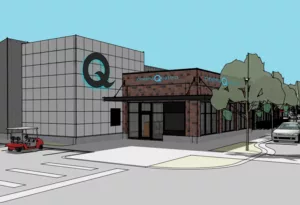
Home » Opioid addiction emerges as issue in rural communities
Opioid addiction emerges as issue in rural communities
Hub and Spoke project shows positive results in northeast Washington

September 14, 2023
As a Providence Family Medicine doctor in rural northeastern Washington, I am used to seeing a variety of cases, whether it is a cowboy in the emergency department who was thrown off a bull or a pregnant mother coming in for a routine checkup.
But in the last several years, I have noticed a concerning trend: people with opioid use disorder.
You think of this as an urban problem, but it’s everywhere.
It may be surprising to see how common this disorder is in our small towns, but many of our residents are blue-collar workers dealing with chronic pain from years as a farmer or sawmill worker. In the past, folks may have taken opioids appropriately for their pain, but it primed our community to have a problem with opioid use disorder.
In the past, folks battling opioid addiction in rural Stevens, Pend Oreille, and Ferry counties often couldn’t find treatment.
Five years ago, I had patients traveling two to three hours to see me for treatment. Our region was short on treatment providers and those of us who were prescribing medication for opioid use disorder could not easily connect our patients with social services needed for them to have long-term success.
Guided by our mission to serve all, especially the poor and vulnerable, Providence set out to find a solution.
In 2017, I helped secure state funding to establish a Hub and Spoke project based in Stevens County. The hub-and-spoke model was designed to create a coordinated, systemic response to the complex medical and social issues of opioid addiction.
People were falling through the cracks. We had to do something.
With this project, Providence brought together local social services, four different rural health care systems, the Northeast Tri County Health District, mental health providers, law enforcement, and other community partners to create a network that unites northeastern Washington’s three counties.
Nurse care managers and care navigators were hired to reduce barriers for individuals seeking services and to help physicians and advanced practice providers manage increases in their practice. Hub and Spoke staff helps patients access social support systems and navigate medication management, drug counseling, and treatment center referrals.
Now, there are prescribers in all three counties, anchored by the three Providence clinics in Stevens County, offering opioid use disorder treatment, including buprenorphine, a U.S. Food and Drug Administration-approved prescription drug that is proven to treat opioid use disorder and save lives. These are providers trained in family medicine doing what we do in this field of medicine—identifying the illnesses in our community and responding by gaining the skills we need to treat the whole person.
And it is not just Providence clinics that have mobilized to address the opioid epidemic.
The Hub and Spoke team also works with Providence critical access hospitals, including Providence Mount Carmel Hospital and Providence St. Joseph’s Hospital, to implement opioid use disorder treatment in the emergency and acute care units. That allows navigators to be able to transition patients to ambulatory care without gaps in services.
Rural areas are often underserved when it comes to opiate use disorder treatment, but we have come a long way in the last five years.
I’m proud to say that in its first five years, the Hub and Spoke project in northeastern Washington served more than 800 people.
Remarkably, and to the credit of our nurses and care navigators, we retain more than 40% of patients in treatment for at least six months. That is well above the state and national average.
Studies show the longer people stay in treatment, the better their outcomes.
Over the past five years, we reduced the rate of opioid overdose deaths in the Tri County area to below the state average. Unfortunately, we have a lot more work to do because of the rise in fentanyl. But we won’t back down.
Latest News Special Report Health Care North Idaho
Related Articles
Related Products




